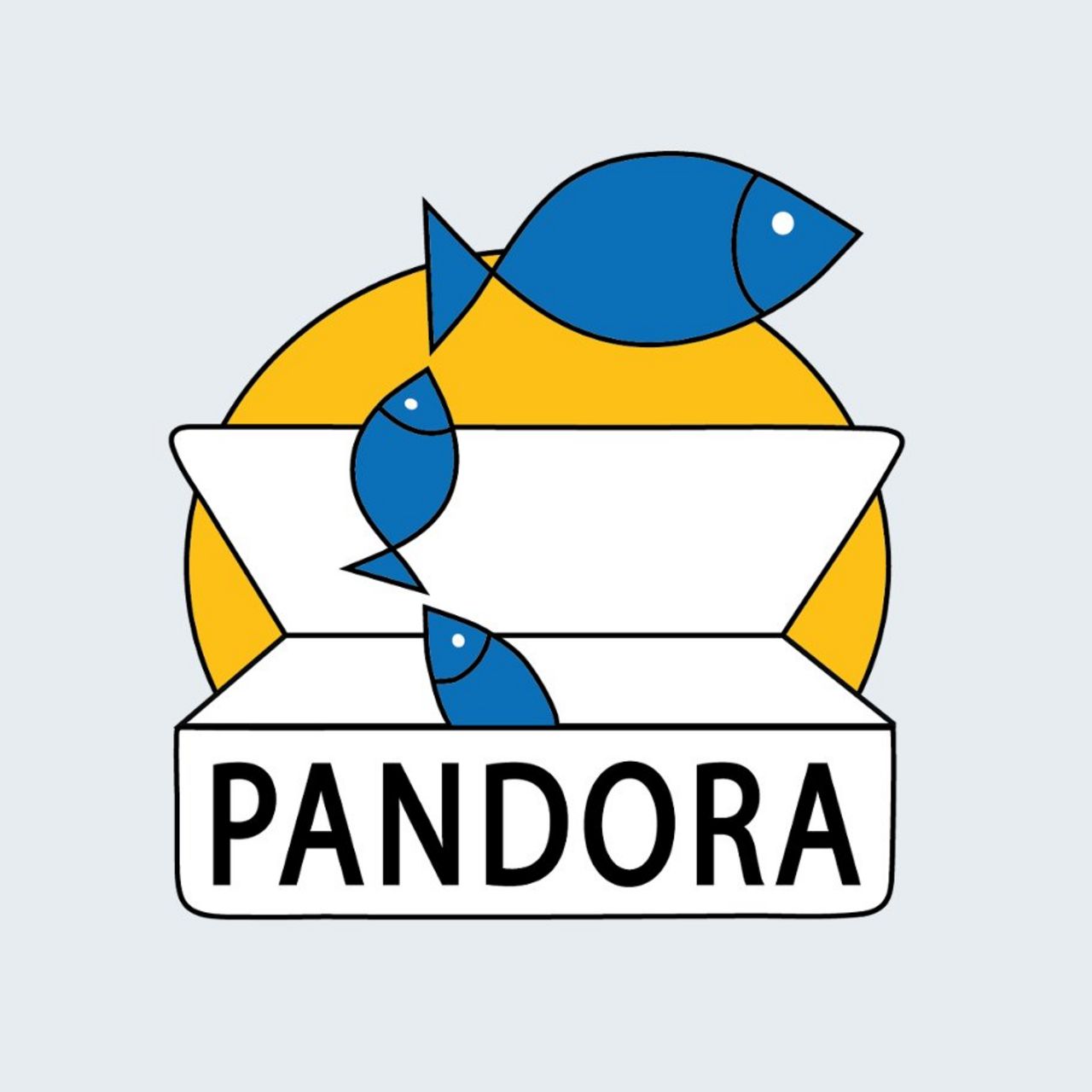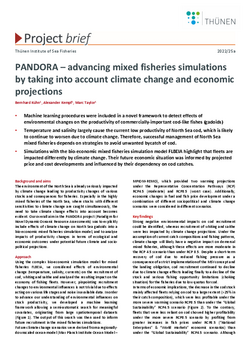Project
Novel ways to manage oceanic resources

Paradigm for novel dynamic oceanic resource assessments
Blue Growth is a buzz word known to many people. But how can blue growth be achieved for european fisheries in a sustainable way? The Project Pandora tries to find answers.
Background and Objective
The Blue Growth of European fisheries is at risk due to over-exploitation, unforeseen changes in stock productivity, loss of markets for capture fisheries due to aquaculture, future trade agreements opening European markets to external fleets, and fluctuations in the price of oil and other business costs. All of these risks need to be considered when providing advice needed to sustainably maximize profits for the diverse array of fisheries operating in European waters and to help safeguard the benefits this sector provides to the social coherence of local, coastal communities. PANDORA aims to:
- Create more realistic assessments and projections of changes in fisheries resources (30 stocks) by utilizing new biological knowledge (spatial patterns, environmental drivers, food-web interactions and density-dependence) including, for the first time, proprietary data sampled by pelagic fishers.
- Advice on how to secure long-term sustainability of EU fish stocks (maximum sustainable/”pretty good” and economic yields) and elucidate tradeoffs between profitability and number of jobs in their (mixed demersal, mixed pelagic and single species) fisheries fleets. Provide recommendations on how to stabilize the long-term profitability of European fisheries.
- Develop a public, internet-based resource tool box (PANDORAs Box of Tools), including assessment modelling and stock projections code, economic models, and region- and species-specific decision support tools; increase ownership and contribution opportunities of the industry to the fish stock assessment process through involvement in data sampling and training in data collection, processing and ecosystem-based fisheries management.
The project will create new knowledge (via industry-led collection, laboratory and field work, and theoretical simulations), new collaborative networks (industry, scientists and advisory bodies) and new mechanisms (training courses and management tools) to ensure relevance, utility and impact.
Approach
The PANDORA project contributes to ensuring the long-term sustainability of European fisheries by advancing current models for fish stock assessments. In cooperation with regional stakeholders, PANDORA will create new biological knowledge, develop fisheries management scenarios and policy recommendations, and provide an online tool box for fishers, fisheries managers, decision- and policy-makers across Europe.
Links and Downloads
Project website: Pandora
 Project Brief: PANDORA Bernhard Kühn, Alexander Kempf, Marc Taylor (2022/25a): PANDORA – advancing mixed fisheries simulations by taking into account climate change and economic projections
1,022 KB
Project Brief: PANDORA Bernhard Kühn, Alexander Kempf, Marc Taylor (2022/25a): PANDORA – advancing mixed fisheries simulations by taking into account climate change and economic projections
1,022 KB
Publications
- 0
Kühn B, Kempf A, Brunel T, Cole H, Mathis M, Sys K, Trijoulet V, Vermard Y, Taylor MH (2023) Adding to the mix - Challenges of mixed-fisheries management in the North Sea under climate change and technical interactions. Fish Manag Ecol 30(4):360-377, DOI:10.1111/fme.12629
- 1
Akbarinia N, Bjorndal T, Failler P, Forse A, Taylor MH, Drakeford B (2022) A multi-criteria framework for the sustainable management of fisheries: a case study of UK’s North Sea Scottish Fisheries. Environ Manag 70(1):79-96, DOI:10.1007/s00267-022-01607-w
- 2
Kühn B, Kempf A, Taylor MH (2022) PANDORA - advancing mixed fisheries simulations by taking into account climate change and economic projections. Bremerhaven: Thünen Institute of Sea Fisheries, 2 p, Project Brief Thünen Inst 2022/25a, DOI:10.3220/PB1658305788000
- 3
Kühn B, Kempf A, Taylor MH (2022) PANDORA - Verbesserte Simulationen gemischter Fischereien in der Nordsee unter Berücksichtigung des Klimawandels. Bremerhaven: Thünen-Institut für Seefischerei, 2 p, Project Brief Thünen Inst 2022/25, DOI:10.3220/PB1658305306000
- 4
Taylor MH, Akimova A, Bracher A, Kempf A, Kühn B, Helaouet P (2021) Using dynamic ocean color provinces to elucidate drivers of North Sea hydrography and ecology. JGR Oceans 126(12):e2021JC017686, DOI:10.1029/2021JC017686
- 5
Kühn B, Taylor MH, Kempf A (2021) Using machine learning to link spatiotemporal information to biological processes in the ocean: a case study for North Sea cod recruitment. Mar Ecol Progr Ser 664:1-22, DOI:10.3354/meps13689
Involved Thünen-Partners
Involved external Thünen-Partners
- Danish Technical University (DTU)
(Kopenhagen, Hirtshals, Charlottenlund, Dänemark) - CEFAS (Centre for Environment, Fisheries & Aquaculture Science)
(Lowestoft, Großbritannien (inkl. Nordirland)) - Wageningen University & Research (WUR)
(Wageningen, Niederlande) - Christian-Albrechts-Universität zu Kiel
(Kiel, Deutschland)
Funding Body
-
European Union (EU)
(international, öffentlich)
Duration
5.2018 - 4.2022
More Information
Funding program: EU – Horizon 2020 – Societal Challenge "Food Security, Sustainable Agriculture and Forestry, Marine, Maritime and Inland Water Research and the Bioeconomy"
Project status:
finished

![[Translate to English:] [Translate to English:]](/media/_processed_/7/1/csm_IMG_7977_large_1defaf5de1.jpg)

![[Translate to English:] Logo des Bundesministerium für Ernährung und Landwirtschaft](/media/allgemein/logos/BMEL_Logo.svg)